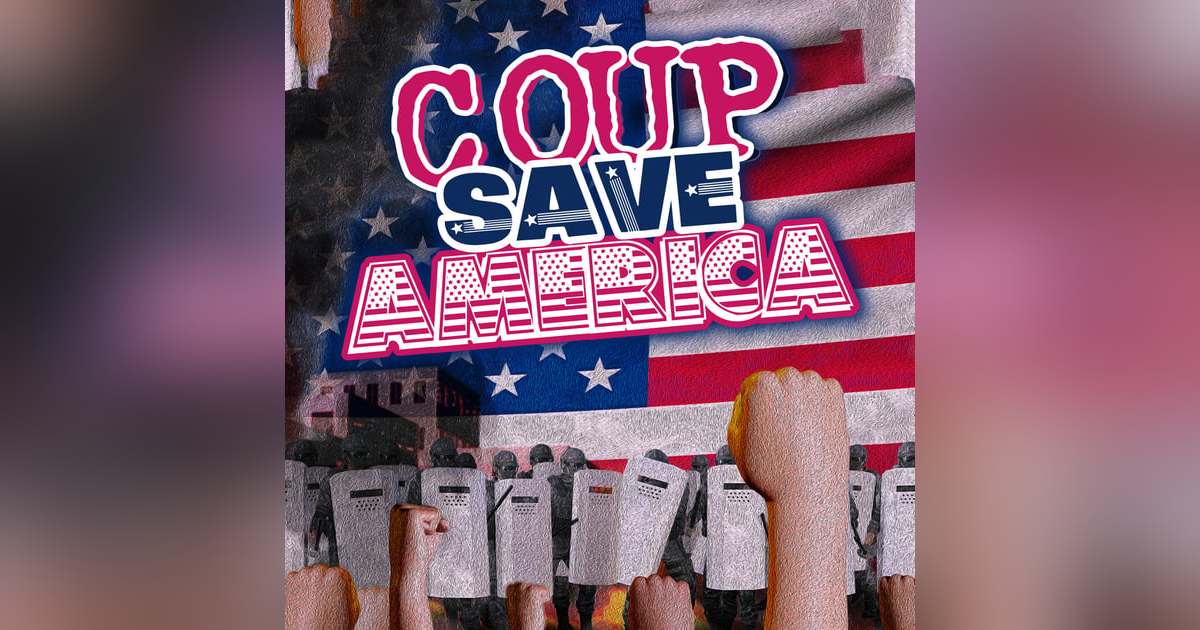

What happens when addiction becomes the rule rather than the exception for most Americans?
Sean’s Monologue: Is a Utopian Society Possible?
Today on Coup Save America we welcome guest Jeff Einstein, a digital media pioneer who has taken a critical stance on how the digital age has negatively impacted our quality of life.
Jeff begins by explaining how a state-sponsored default addiction to digital media began to develop in the early 21st century. He professes that the rise of runaway digital scale has given all the institutions in our life more power with less accountability. We can’t walk away or opt out from this institutional tyranny, and the resulting addiction has led to a decline in our spiritual, social, emotional, and physical wellbeing.
Jeff describes his theory of “Huxwell”, the current totalitarian dystopia that combines elements of Alex Huxley’s A Brave New World with George Orwell’s 1984. He tells us about the 3 mass formation psychosis that have gripped American society in the first two decades of the 21st century.
Jeff goes on to confess his professional history, including his creation of many “firsts” in the field of digital media – contributions that he is no longer proud of and that he now feels he must distance himself from by blowing the whistle on the harm his former industry has caused to our country. Jeff is the founder of “The Quality of Life Resistance Movement”, which creates a road map for individuals and families to escape our state of default media addiction. He gives us his three primary calls to action for inserting “meaningful ritual” back into our lives, and he explains why he feels this is the only statistically viable way to fight addiction.
Sean and Jeff spend the second hour of the interview chatting about various topics such as the history of the surveillance state, the democratization of media, Canadian philosopher Marshall McLuhan, “Trump derangement syndrome”, giving up our civil liberties out of fear, the industrialization of liberation movements, Palestine and cultures of victimhood, and, of course, the irony of promoting an anti-digital media campaign using digital media. It is an insightful conversation even if the two participants don’t always agree.
We conclude the episode by watching a promo video for Jeff’s documentary film-in-progress – The Rise of Huxwell. Learn about and donate to the movie at: https://riseofhuxwell.com
Discover The Quality of Life Resistance Movement, the antidote to Huxwell at:

Dad / husband / sibling / author / producer / philosopher
I’m a father, husband, sibling, and friend. Also a widely published author, speaker, producer, and digital media pioneer long ago turned digital apostate. College-free, I describe my four-year high school career as the best eight days of my life. Chased out of two different countries by two different military conscriptions (back in the early 1970s when I still had one good knee) with a history of layovers at airports that lasted longer than most of my corporate jobs.
Perhaps because I've never entertained an actual career ambition, my professional life unfolded over the years as a series of accidental but prophetic firsts, starting with Einstein's Computer Guides, the first major how-to book series on personal computers, and Einstein and Sandom Inc., the nation’s first digital advertising agency — both way back in 1984/85. Then came Room Service Hawaii, the nation’s first home-away-from-home cable shopping channel in the early 1990s. Returned to NYC for the Dot Com madness where — ensconced like an outsized Yoda at rooftop designer vodka parties — I introduced Smart Syndication, the first ecommerce syndication network.
The New York Times referred to me in the early 21st century as the Mick Jagger of digital media. Seemed to bear a faint resemblance to a compliment at the time, but now I think it was because — like Mick Jagger — I was the only butt-ugly old coot in an industry full of good looking young hipsters.
I went from digital media pioneer to digital apostate in 2004 — some years before Youtube and Netflix and Facebook and smartph… Read More











